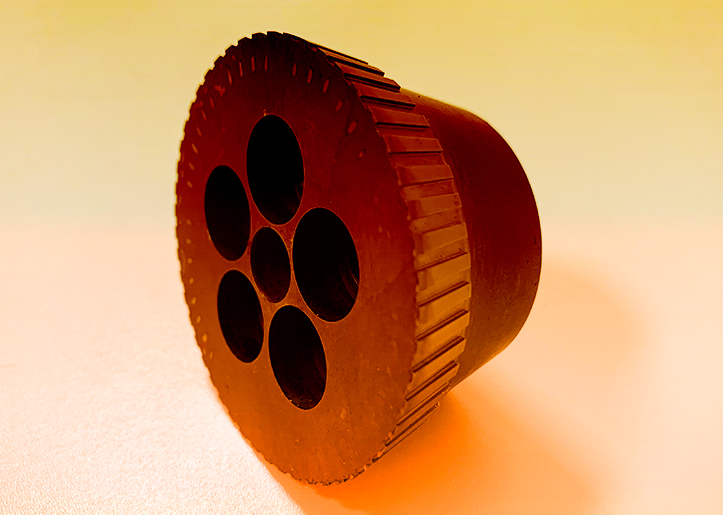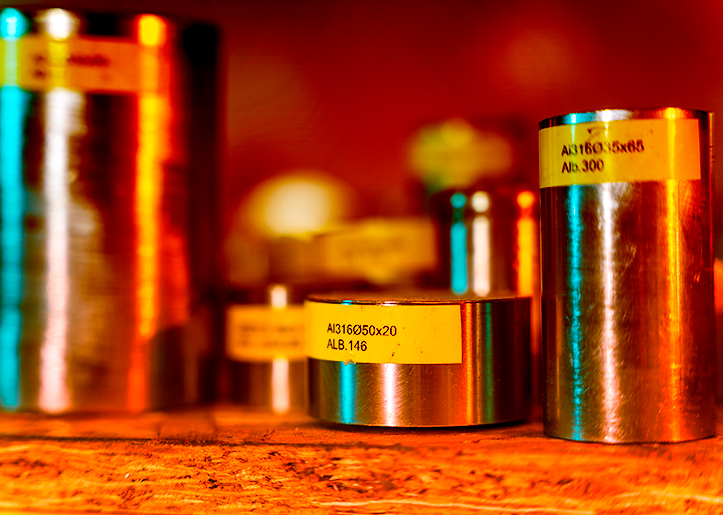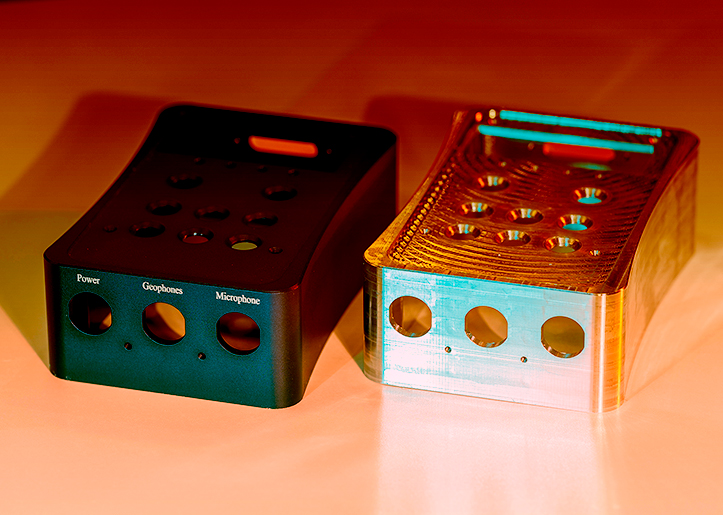Tempering is a heat treatment that is carried out on steel after hardening to achieve…

Types of metals for machining | EONSI
Many metals are used to manufacture parts. Find out about the types of metals for machining and their characteristics.
Types of metals for machining or tooling
Machining is the set of industrial process operations with which a given raw material is processed. The aim is to give the selected raw material (plastic, wood or metal) a specific shape. However, not all materials behave in the same way, nor do all the tools used perform the same operations. Therefore, we must be clear about which raw material we are starting from before designing a part. Furthermore, there are different types within each main raw material that will also condition the manufacturing process. Metals are one of the most extensive ranges with the most applications in industry. There are many types of metals for machining or tooling: steel, cast iron, tin, copper, brass, aluminium, bronze, titanium, zinc, lead and magnesium. Among all of them, ferrous metals (steel and cast iron), as well as copper and aluminium are the most common in industry due to their behaviour at high temperatures, wear and tear or the toughness of these materials.
Steel
Steel is one of the most widely used materials in the machining sector. There are two main groups: alloy steels and stainless steel.
Alloy steels are ideal for developing various types of projects. This type of steel is obtained by combining steel and carbon with any other alloying element, thus improving its thermodynamic and mechanical properties. The most common elements are: selenium, boron, manganese, lead, chromium, silicon, molybdenum, vanadium, and nickel.
Steel alloys allow for greater hardness and toughness, as well as better hardening, elasticity and resistance to high temperatures. Their properties are the reason why they are often used in industry. For example, low-alloy steels are used in machine construction and for hot or cold tools, and high-speed steels are used in cutting tools.
Stainless steel is one of the most widely used materials in the area of machining. In addition, the stainless steel family is divided into four further types according to their malleability, hardness and corrosion resistance.
- Austenitic: This is the most corrosion-resistant steel due to its low carbon content. It’s made up of nickel and chromium. It is usually used in industrial equipment. Its resistance makes it a perfect candidate for tanks and pipes containing corrosive liquids, but it is also used in the mining, chemical, cryogenic, food and pharmaceutical industries.
- Ferritic: It is a very economical and corrosion resistant chromium alloy. They differ from austenitics in that they are magnetic and in some of their components. Frequently used in oil or natural gas processing plants, nitric acid and hot water tanks or in the creation of furnace and combustion chamber parts.
- Martensitic: Named for its tetragonal martensite microstructure which allows it to harden at low temperatures, giving it strength and toughness. It is commonly used in medical material manufacturing.
- Duplex: This type of steel has a high chromium and molybdenum content, being one of the most elastic and, at the same time, one of the most expensive. It is used to manufacture fans, rotors, shafts and some structures such as bridges.
Cast iron
Cast iron is basically a mixture of iron and graphite, resulting in a material with high wear resistance and superior hardness. Cast iron is classified as
grey cast iron (dark grey at the fracture surface), white cast iron (bright white) or crushed cast iron (greyish fracture surface).
Cast iron is a very common type of machining metal. It is often used in marine water pump housings, for mill rollers or for parts of land-based mobile equipment.
Copper
After iron and aluminium, copper is the most widely used material in industry. Its high thermal and electrical conductivity, high corrosion resistance, ductility and malleability mean that copper and its alloys are easy to machine.
Copper is an excellent material for CNC machining prototypes and one of the most widely used materials for electronic components. However, this is not its only use; it is also used to manufacture wiring, piping, musical instruments and tools.
Aluminium
Aluminium alloys can be machined easily and with relatively little energy. It is one of the most commonly machined metals in production processes due to its properties. These include its low density (with an excellent strength-to-weight ratio), natural corrosion protection and high electrical and thermal conductivity.
Aluminium’s great versatility allows it to be used in a large number of applications: aviation, food containers, aerospace industry, machinery manufacturing, sports equipment, weaponry and the chemical industry.
EONSI, specialists in the machining of all types of metal
At EONSI we offer you all the CNC machining technology for metals. Contact us and we will develop the project you want with the types of machined metals or materials that best suit your needs. Ask us for a no-obligation quote.



